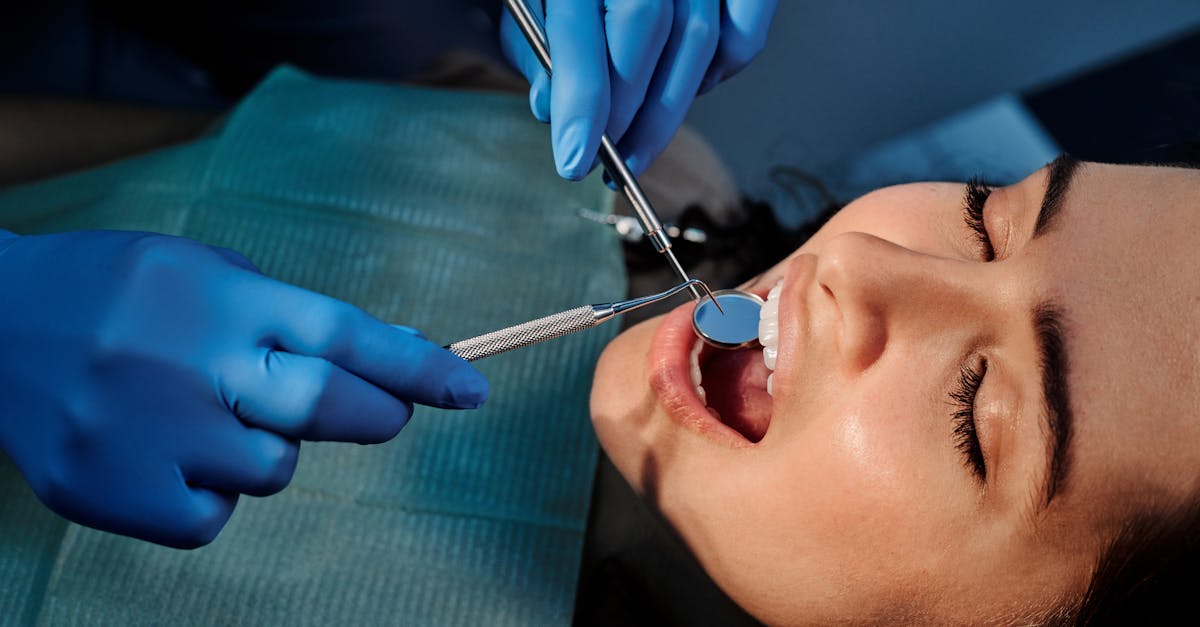Aftercare Mistakes to Avoid for Dental Implants

Table Of Contents
The Impact of Smoking
Smoking poses a significant risk for individuals with dental implants. The harmful substances in cigarettes can restrict blood flow and impair healing. As a result, the integration of the implant with the jawbone may be compromised, increasing the chances of implant failure. Furthermore, smoking can lead to complications such as infections and prolonged inflammation.
Oral health is further jeopardised by smoking, leading to an increase in plaque and tartar buildup around dental implants. This environment can contribute to peri-implantitis, a condition that affects the tissues surrounding the implant. Maintaining good oral hygiene is crucial, but smoking reduces the effectiveness of these practices and hinders recovery after implant surgery.
How Smoking Affects Implant Healing
Smoking can significantly hinder the healing process after dental implant surgery. The chemicals in tobacco smoke reduce blood flow in the body, which is essential for delivering nutrients and oxygen to healing tissues. This compromised circulation can lead to complications, including implant failure. Smokers also face a higher risk of developing infections, which can further complicate recovery and undermine the stability of the implant.
In addition to impaired circulation, smoking can interfere with the body’s immune response. This suppression means that the body is less equipped to fight off infections that may arise post-surgery. Research indicates that smokers are more likely to experience complications like peri-implantitis, an inflammatory condition affecting the tissues around an implant. Such conditions can lead to bone loss and ultimately jeopardise the success of the dental implant.
Importance of Regular Follow-ups
Regular visits to your dentist are essential in the aftercare of dental implants. These appointments allow for professional cleanings and examinations, which can identify potential issues before they escalate. Dentists can monitor the health of the gums and the stability of the implants, ensuring that everything remains in optimal condition. Patients who neglect these follow-ups may face undetected problems that could compromise their implants and overall oral health.
Scheduling visits should be based on individual needs. For most patients, a check-up every six months is recommended, but those with specific concerns or a history of dental issues may require more frequent visits. During these appointments, dentists can provide personalised advice tailored to each patient's situation. Being proactive about aftercare not only preserves the integrity of dental implants but also contributes to long-term oral health.
Scheduling Visits with Your Dentist
Regular check-ups play a crucial role in ensuring the success of dental implants. These visits allow the dentist to assess the healing process and address any potential issues early. Timely appointments can also help maintain optimal oral hygiene, making sure that both the implant and surrounding teeth remain healthy and functional.
Patients should aim for follow-ups as recommended by their dental professional. This usually includes a series of appointments in the months following the procedure. Keeping an open line of communication with the dentist ensures that any discomfort or concerns can be addressed promptly, reinforcing good long-term outcomes for the implants.
Using the Wrong Dental Products
Using inappropriate dental products can hinder the healing process of dental implants. Many individuals may gravitate towards whitening toothpastes or products with harsh abrasives, assuming they offer superior cleaning. However, these can lead to gum irritation and damage the implant's surrounding tissues, ultimately affecting stability and longevity.
Choosing mouthwashes that contain alcohol can also pose risks. Alcohol can dry out the oral mucosa and contribute to discomfort during the recovery phase. Opting for an alcohol-free mouthwash designed for sensitive gums is essential to ensure a gentle yet effective cleaning regimen while supporting the healing process.
Choosing the Right Mouthwash and Toothpaste
Selecting appropriate dental products is crucial for maintaining oral health after implant surgery. Mouthwash should be free of alcohol and harsh chemicals that may irritate sensitive gums or the implant site. Choosing an antibacterial mouthwash can help reduce the risk of infection and promote a healthier healing environment.
When it comes to toothpaste, opt for a fluoride formula designed for sensitive teeth. These are gentler on the gums, offering protection without excessive abrasion. Products containing natural ingredients may also provide additional benefits, such as soothing inflammation. Ensuring the right choice in dental care products supports optimal recovery and long-term success for dental implants.
FAQS
What are some common aftercare mistakes to avoid after getting dental implants?
Common mistakes include smoking, neglecting regular follow-up appointments, and using inappropriate dental products. These can negatively impact the healing process and the longevity of the implants.
How does smoking affect dental implant healing?
Smoking can significantly hinder the healing process by reducing blood flow to the gums, increasing the risk of infection, and leading to implant failure. It is advisable to avoid smoking both before and after the procedure.
Why are regular follow-ups important after getting dental implants?
Regular follow-ups allow your dentist to monitor the healing process, identify any potential issues early, and ensure that the implants are integrating properly with the jawbone. This can help prevent complications in the future.
What dental products should I avoid after dental implant surgery?
It's best to avoid abrasive toothpaste and mouthwashes with strong alcohol content, as they can irritate the gums and negatively affect healing. Opt for products specifically designed for sensitive teeth or post-surgical care.
When can I start using regular dental products again after my implant procedure?
It is typically recommended to wait until your dentist gives you the green light, usually a few weeks after the surgery, before transitioning back to regular dental products. Always follow your dentist's advice for the best results.
Related Links
Essential Aftercare Tips for New Dental Implant RecipientsThe Long-term Benefits of Following Aftercare Guidelines
Aftercare Strategies for Different Types of Dental Implants
Monitoring Your Implants: When Aftercare Becomes Critical
Connection Between Aftercare and Overall Oral Health